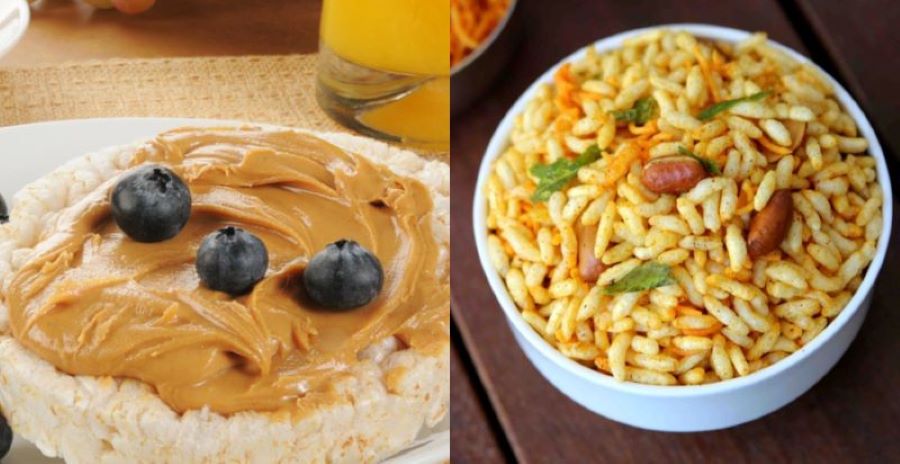Every girl dreams of achieving that perfect svelte figure and in that quest, most of us go through strict diet regimen and strenuous exercise routine. Once women reach that dream goal, a few of them encounter what can be termed as unexplained hair loss. Isn’t it unfortunate, just when you have got your slim figure, you start losing your hair. But not everyone who is losing weight or has lost weight hair experiences hair fall. Just a fraction of women experience hair fall which spirals out of control and that’s just because they cut back heavily on nutrition. If you are on a weight loss journey, we would like you to be aware that if you do not stick to the diet plan given to you and weed out essential vitamins and minerals for hair growth, your body can revolt and cause severe hair fall. In this post, we will tell you how to prevent hair fall associated with weight loss. So, read on 🙂


Different Stages of Hair Growth:
You would be surprised to know that our grows just about half an inch every month, and it doesn’t matter what hair oil or shampoo you use to accelerate hair growth. here are four stages of hair growth – anagen, catagen, telogen, and exogen.
- Anagen – This is the growth phase and it would last an average of 3 to 5 years. A hair can grow up to 18 to 30 inches during this phase.
- Catagen – This phase begins at the end of anagen phase. This phase lasts for around 10 days.
- Telogen – This is the resting phase when hair falls out of its follicles. The follicles then remain dormant for 3 months and then the anagen phase restarts.
It’s an interesting fact that every strand has a different growth cycle and they do not grow out and fall from the scalp uniformly. On an average, around 100 hair strands fall out of the follicles and it is quite normal to lose that number of hair each day, nothing to be alarmed about. Hair fall can be termed abnormal when hair strands on the comb exceed 100 and beyond. Hair fall can be triggered by a number of factors such as hormonal disorder, use of harsh shampoo and conditioner, hairstyling products, chemical treatments such as straightening, prolonged use of antibiotics and other strong medicines, and most importantly, lack of nutrition.

Coming to nutrition, when your hair doesn’t get enough nutrition, hair strands do not stay long enough in the anagen or growth phase and do not attain enough length. Loss of vital nutrients during a strict diet can trigger hair fall. Crash dieting where where one rapidly cuts back on essential vitamins and nutrients would lead to hair fall.
What is Telogen effluvium?
Telogen effluvium is a condition where there is severe hair fall as a result of illness, traumatic event, stress, and shock. It’s just a temporary hair loss condition where one loses hair from the crown area mostly and after a period of time hair grows back normally. Telogen effluvium is the main reason one loses hair during dieting and once nutrients and vitamins get added back into the diet, telogen effluvium gets resolved.
How To Prevent Hair Loss During Dieting?
The most important thing to remember is to not take down your regular calorie intake to below 1200 because the body usually goes into a shock with lack of nutrients and would go into the above-mentioned telogen effluvium phase which would lead to severe hair fall. To stop such a condition, consume lean protein diet, fruits, and complex carbohydrates. If one keeps proper nutrition in mind during dieting, it would not cause any hair fall. A diet which is missing in protein, iron, biotin, selenium would trigger hair fall.
What’s the Connection Between Dieting and Hair Fall?
During dieting, one tends to lose weight rapidly and in a situation where the body is getting less food and nutrients, vitamins and minerals essential to run bodily functions smoothly, the body tends to provide nutrients to the hair in the last and in the absence of nutrients, hair follicles become weak and shed hair. Interestingly, your hair and nails only get leftover vitamins and nutrients and in a situation of scarcity, your hair would not get any vitamin or nutrients at all. Also, the hormones that affect hair growth are disrupted during dieting and this disruption leads to hair fall. As mentioned above, our hair goes through a cycle and the hair on the scalp in different areas fall down at different times. In order to tackle hair loss associated with dieting, one must eat vitamin, mineral, and nutrient rich food.
Lack of sleep and stress are also important factors that can cause hair fall. So, ensure that you sleep well and get at least 8 hours of sleep each night – afternoon sleep does not get counted.
How to Tackle Hair Loss Due to Dieting:
- The most important thing to do to is to see a certified doctor or a trichologist (someone who specialises in hair loss problems).
- Include alpha linoelic acid rich food. Deficiency of ALA can make hair brittle and trigger hair fall. Lack of ALA can make hair dry and weak. Flaxseed is a rich source of omega-3 fatty acid and lpha linolenic acid. Other sources of ALA are walnuts, eggs, almonds, chicken, lentils, etc.
- Don’t switch shampoos frequently. Use a mild sulphate-free shampoo so that weak hair does not fall out of its follicle.
- Wash hair only with lukewarm or cold water, no hot or scalding water please.
- Apply onion juice on the scalp directly to stop hair fall.
- Eat a diet rich in protein, vitamin E, vitamin B12, iron, and zinc.
- Use a mixture of castor oil (2 tbsp), coconut oil (2 tbsp), and a few drops of peppermint essential oil to stop hair fall and to trigger hair growth.
- Include nuts like walnuts and almonds in your diet.
- Do not comb when your hair is wet because it may weaken hair follicles.
So, in essence, dieting may not cause hair fall if you consume enough nutrients and do not deprive your body of essential vitamins and minerals. Stick to your diet routine and flaunt that figure and healthy hair with aplomb.





